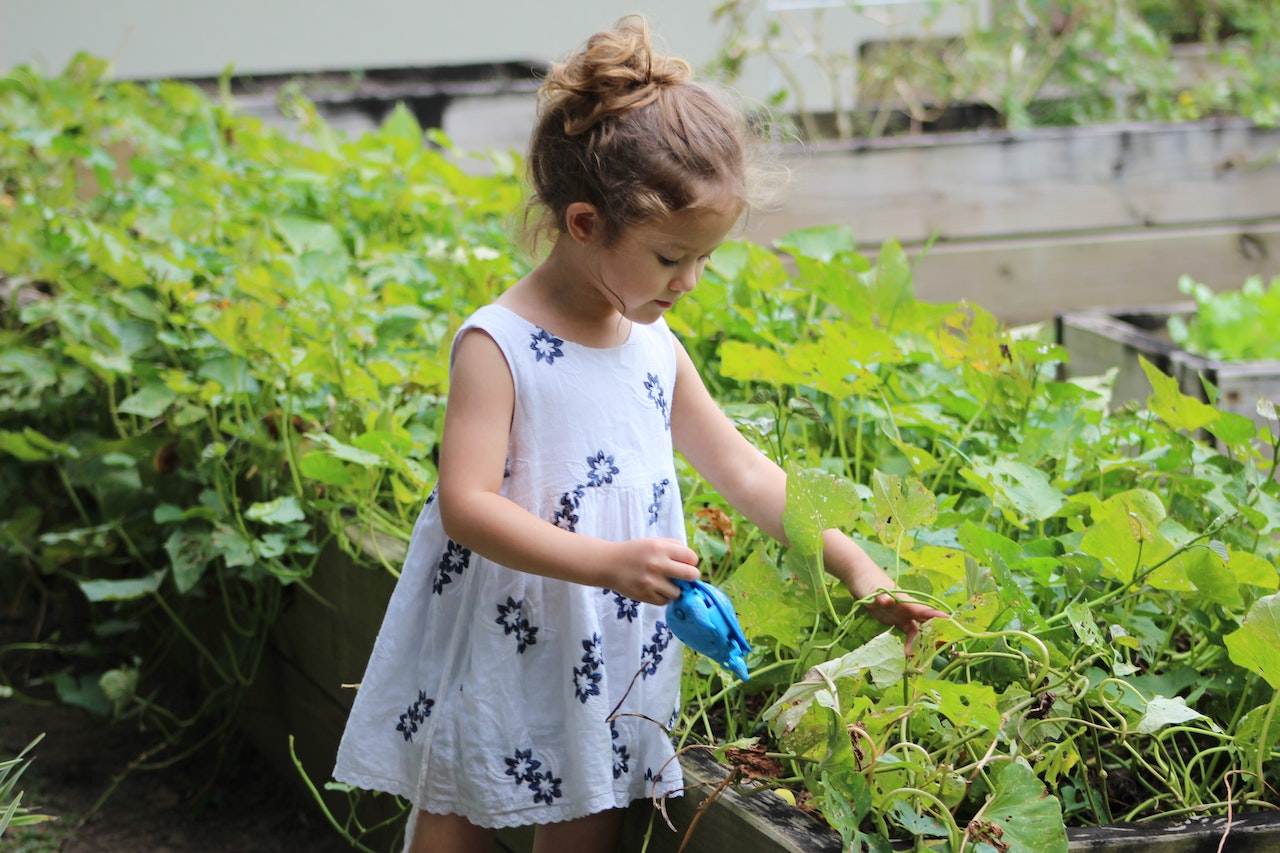In World War Two, the British Ministry of Agriculture encouraged the British public to Dig for Victory to supplement food during harsh rationing. Millions of people answered the call, and an estimated 1.4 million allotments were involved, but today there are just over 330,000 plots in the UK. ShefFood and its partner organisations are ready to encourage Sheffield folk to Dig for Victory again, but it’s not about individuals but about bringing the whole city together.
One of the key commitments in Sheffield’s recent Local Food Action Plan is to strengthen the food network by developing skills and learning together. And part of that is to enhance food growing education for children, young people and adults in Sheffield and help participation in food growing activities at home and in community and educational settings. Today, we explore why food growing is a fantastic activity for the city and how we can make growing a vital part of our landscape.
Why growing food is excellent for Sheffield
Growing food provides endless opportunities for learning, exercise and improved well-being. It’s not just about producing more local food for the city but supporting our communities through their food systems.
Getting active
Gardening is a fantastic activity for your health. The varied tasks, such as lifting, bending, and stretching, provide a whole-body workout without high impact. Surprisingly, with just 30 minutes of gardening, you can burn as many calories as playing badminton, volleyball or practising yoga. With Sheffield having higher rates of obesity than the UK average, gardening offers a fun exercise option to help with your health goals. Furthermore, studies find that gardeners have a lower risk of heart disease, diabetes, asthma, and migraines. From kids to OAP, growing your own food is a fantastic activity.
Feeling great
But gardening isn’t just good for the body but also for the mind. Gardening has been linked to reduced levels of depression and anxiety, can prevent cognitive decline and improve confidence and independence. With nearly a quarter (23%) of people in Sheffield describing themselves as feeling ‘highly anxious’, the mindfulness of growing and being in nature could help. The act of growing food can improve both physical and mental health, but those same veggies you grow improve your health further by providing you with a better diet. Access to nutritious fresh foods significantly impacts your body, helping you fight off illness, maintain a healthy weight and improve your mental well-being.
Better Jobs
While food greatly impacts our health, so does our financial security. Involving more people in food education, training and action could boost the food industry in Sheffield and provide jobs for many in our community. This growing sector (all puns intended) could supply the next generation with a secure career that benefits everyone in the city. With rising levels of youth unemployment, this could be part of the solution.
A Greener City
More local food that is nutritious, affordable and accessible is clearly an excellent thing for all people in Sheffield. On top of all these benefits, though, is the significant positive impact it could have on our environment. Choosing local produce can reduce energy usage for transportation, processing and packaging. If we utilise permaculture methods and organic practices, we can improve biodiversity, reduce carbon emissions and improve soil and water health. Plus, when opting for seasonal fruit and veg, we ensure we get the tastiest food without damaging the planet.
How can we get more people into growing food?
While this all sounds fantastic, there have to be some significant changes put in place to enable more people in our city to grow food, whether that’s at home, in their community or commercially. As part of the Local Food Action Plan, several Sheffield organisations have committed to making this a reality across several projects and campaigns. From primary education to adult training and community projects for older adults, growing food must be part of our city’s culture.
The first step, as is often the case, is undertaking research to understand Sheffield schools’ assets and needs to help the development of food-growing activities in schools. This involves Identifying schools that want to undertake food-growing activities on-site (or in partnership with nearby sites) and identifying ways to support them. The next step is to get those kids growing. We can draw on existing food-growing projects to create learning resources for schools and alternative education settings. We also need to support the integration of food and growing topics into education in primary and secondary schools. And we need to develop extracurricular learning opportunities about food growing through collaborations between educational institutions (schools, colleges, universities) and local food-producing projects. Eat Smart Sheffield (Learn Sheffield) alongside organisations such as Heeley City Farm, Kids Plant Trees, Regather, and Schools’ Climate Education South Yorkshire are leading the way in healthy eating and food education in Sheffield Schools.
Education can’t just stop at 18, though; we need to support individuals and communities to access the information, tools, equipment and materials required to engage in nature-friendly food growing. We also need to provide opportunities for young people and adults to participate in farming in growing projects and sites across the city. Some fantastic organisations, such as Allotment societies, charities and community groups, have already been doing this work for years. Some honourable mentions include; Friends of Firth Park Community Allotments, Friends of Gleadless Valley Methodist Church Community Gardens, Green City Action, Green Estate, Heeley and District Allotments Protection Society, Percy Street Community Interest Company, Sheffield and Rotherham Wildlife Trust, Sheffield Fruit Trees and The Sheffield Wheat Experiment. It’s time to expand these opportunities and make growing food a viable option for anyone wanting to join the food revolution.
Can you help?
While the Local Food Action Plan has key commitments from some great organisations, everyone in Sheffield should be part of changes in our city. Here are some ways you might help more people grow fruit and veg in our community.
- Are you a parent, teacher or pupil? Ask your school what they are doing to help educate students on growing food. Visit Eat Smart Sheffield for more help and advice.
- Are you a business that has land that could be used for growing food? Big or small, you’ll be surprised how much can be produced. Contact Sheffood to connect with community groups and growers.
- Already got a growing project and need more volunteers or staff? Let ShefFood know, and we’ll help you promote it.
- Fancy growing something yourself? Whether you can grow some food at home or join a community allotment, being involved in making your own food will be a fantastic experience. Some organisations with farming volunteering include Food Works Sheffield, Green City Action and Regather.

